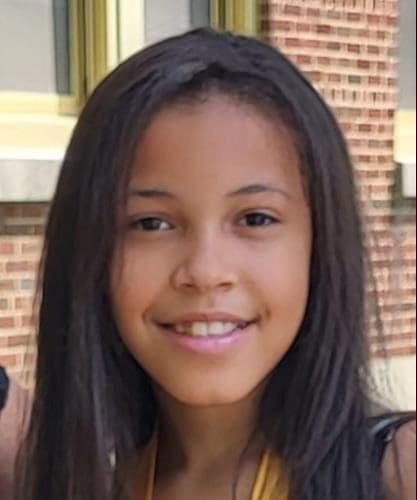For two decades, the CanTeen in Cicero has been redefining family.
“Anybody who walks through that door, we’ll have a relationship with, because they’re family,” said CanTeen Executive Director Toni’Lyn Brauchle. “Our job is to facilitate in connecting the dots to see how they have more in common with the people that they’re spending time with than they’re different. Once we show them those connections, they’re family for life.”
Toni has been with the teen center since the beginning, and she’s devoted the bulk of her life to providing a home away from home for the kids of Cicero and North Syracuse—some 300 kids a week come to the CanTeen between the hours of 2 and 6 p.m. on weekdays to watch TV, eat snacks, do homework or just hang out, all under “Miss Toni’s” supervision. And while they’re there, they’re not getting into trouble—according to the Afterschool Alliance, afterschool programs like the CanTeen improve academic performance, reduce the risk of youth experimenting with alcohol and drugs as well as teen pregnancy, improve school attendance, and reduce the risk of kids being involved in violent crime. In addition, a study by Rose Institute at Claremont McKenna College found that every dollar invested in high-quality afterschool programs saves taxpayers about $3. That goes up to $8 to $12, if the benefits from crime reduction are included in the calculation.
None of this is news to Toni.
“Our foundation is to believe that a young person is a whole human being, not a problem to be solved,” she said. “All this other stuff will come because you’re building them up rather than focusing on what their problem is. That’s the foundation of what we do, even today.”
Building a home
A Long Island transplant, Toni graduated from North Syracuse High School in 1978. She married and raised two kids here—and all the while, her younger sibling was struggling with addiction. It had a profound impact on her. She wanted to do something to help families in a similar situation. So she joined with Christine Burke and Dr. David Morton from the North Syracuse Central School District to create the PRIDE Team.
“There were probably 40 or more kids who joined us in the idea that it was okay to not use,” Toni said. “We had this idea in our heads that we would make it cool and okay and acceptable not to use.”
At the time in the late 1990s, federal and state funding for drug prevention programs was plentiful, and the American Red Cross, then led by Elizabeth Dole, was encouraging communities to use the funds to provide opportunities for kids and teens during afterschool hours. With the help of Cicero Police Chief Joseph Snell, who also worked with the Red Cross, the PRIDE team applied for and received a grant to run an afterschool program. The Red Cross donated a vacant storefront at Penn Can Mall that was transformed into a teen center, then called The Youth Initiative.
But things went downhill in late 2001. The leadership at the American Red Cross changed. The drug prevention funding streams dried up. September 11 and the ensuing financial crisis happened. Penn Can Mall was demolished. And the CanTeen was left in the lurch.
“Everything changed,” Toni said.
The town of Cicero took over the administration of the CanTeen on Jan. 1, 2002, but funding has been an issue ever since. The teen center bounced around, moving five or six times, before finally securing a $250,000 grant with the help of Assemblyman Al Stirpe (D-Cicero) that helped them to purchase their current home at 6046 Route 31, next to Cicero-North Syracuse High School, in 2012. The center is now funded through the cooperation of the towns of Cicero, Clay and Salina and the village of North Syracuse, private donations, and a combination of fundraisers, the largest of which is the Gus Macker 3-on-3 Basketball Tournament, held each summer at the high school.
A community center
Toni said the center wouldn’t be where it is without the support of the community.
“As I’m reflecting back on the 20 years, I’m in awe of the community that we reside in and the fact that they have agreed on this one thing,” she said. “The four municipalities and the school districts have continued to agree on this one thing, and that is the lives and enriching the lives of the young people who reside here.”
She also credited the many people who have been there along the way, from former North Syracuse teachers Bill Brown and Bill Bradley, who helped launch The Youth Initiative; Joan Kesel, supervisor of the town of Cicero when the CanTeen was first established; former Onondaga County Undersheriff Warren Darby, a longtime supporter; former North Syracuse Central School District Superintendent of Schools Dr. Jerome Melvin; Sandra DiBianco, a former member of the NSCSD Board of Education; Amy Venditti, who recently joined the CanTeen as a second full-time employee; Joe Snell; David Morton; and members of the media who have supported the center’s mission over the years. But most of all, she wanted to give credit to Jody Rogers, Cicero’s director of parks, recreation and youth development.
“We would not be where we are at if it wasn’t for her persistence and her ability to do the networking and provide the supports for us to get the job done,” Toni said. “She held us and continues to hold us to a standard of a quality program that is second to none. We wouldn’t be open today if we weren’t held to that standard.”
A 20-year success story
With that support, the CanTeen has been able to keep its doors open for 20 years. They’re celebrating with a year-long fundraising drive—they hope to raise $20,000, which sounds like a lofty goal, until you consider the way they’re doing it: in true CanTeen style, Toni and her staff are asking for $20 donations from 1,000 people. When you consider the number of people who have been touched by the teen center, it doesn’t seem like an unattainable number.
The community marked the 20th anniversary last month, again, just the way you’d expect the CanTeen would — not with a gala or a ball, but a family-style party filled with CanTeen alumni. For Toni, it was immensely satisfying.
“I see the success stories of kids and where they’re at now in life,” she said. “We’ve lost a few along the way, and some still struggle, but a majority of them are doing well, and they’re just thriving and being everything that they hoped they could be.”
Some days are certainly better than others—working with teenagers is never a walk in the park—but all in all, Toni said it’s always worth it.
“Ninety-nine-point-nine percent of the kids who come here are amazing human beings that give me so much more than I could ever give back,” she said. “They have so much to offer. They don’t even see their own strengths. They don’t see what they’re capable of.”
She said the kids she sees just want to be accepted.
“I think every human being needs to feel like they’re worth something, and have a connection somewhere, and belong somewhere, that sense of belonging,” Toni said. “As much as we provide that for them, they provide that for us as well, a hundredfold.”





